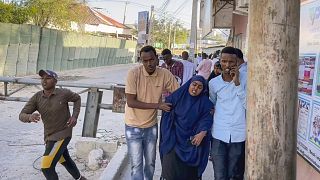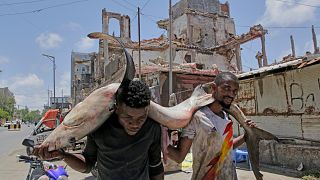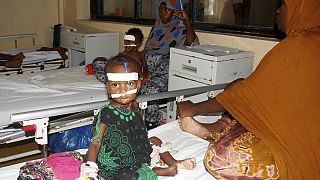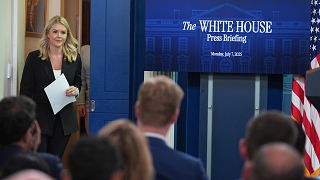Somalia
Somalia's presidential election is due on Monday but it is unlikely to go ahead, according to provincial officials despite talks between President Mohamed Abdullahi Mohamed and opposition candidates.
The process to pick lawmakers was scheduled for December but has yet to start after the opposition accused the federal government of placing presidential allies in the electoral commission.
Due to continued daily attacks by al Qaeda-linked al Shabaab insurgents and delays in preparation, Somalia chose an indirect vote, meaning lawmakers would choose the next leader.
"What's really been difficult this time around is that the level of contestation internally in Somalia is so much higher and really the level of trust between the main electoral stakeholders and parties is much lower than it has been in the past," said Omar Mahmood, a senior Sonalia analyst at the International Crisis Group.
"And so that level of contestation has implemented or basically impacted the implementation of an electoral agreement the parties signed last September and really prevented them from moving forward, prevented them from fulfilling the technical details," he told Africanews.
"That's why we're actually coming very close to February 8th, the end of the presidential mandate, without any real preparations or any real prospect of that vote taking place ahead of that."
'Uncharted waters'
The president met opponents in central Dhusamareb town this week to try to agree on a plan for the election to take place.
Mahmood said, "it's a good step, but it's also quite late, very late in the game."
"We're only a few days away from the end of the mandate of the president. And so that's why getting to the table now is at least a positive step and seeing a bit of his last-ditch effort.
"If the parties can come to a consensus that comes up with a new timeline for the election. I think that's seen by most as the best-case scenario, more or less prolonging the current dynamics. But the big X factor is what if there is no agreement?"
Mahmood said if that were the case "then Somalia is in uncharted waters because there have been electoral extensions in the past, but they've always been preceded by consensus.
"The other question is, even if you do get to an agreement, what sort of guarantees or what mechanisms can you put in place to ensure we're not at the same position a few months down the road, given the level of distrust is so high when it comes to implementation? There are all sorts of disputes and disagreements around that.
"So I think those are some key questions that will have to come out of this because otherwise, I worry that we'll have an agreement, we'll have an extension, and a few months from now, we'll be having the same conversation," he said.
What can be done?
Somalia has been marked by over two decades of warfare and political instability following the removal of President Siad Barre in a 1991 coup.
The central government controls only a part of Somali territory and relies on the African Union peacekeeping force, AMISOM, to confront a violent insurgency from the militant Islamist group al-Shabab, and the less potent Islamic State .
At least two of Somalia's five federal states have opposed holding the vote now.
Political infighting between Mogadishu and the states is a recurring matter. So what can be done?
Ironing out their differences "should be the number one priority post elections, whether that's a new administration or the continuation of this one, resetting that relationship between the centre and the periphery in Somalia," said Mahmood.
"Between the federal government and the federal member states, that starts with rebuilding trust. And then I think the key component of that is dialogue, regular and active dialogue over the last administration.
"We saw large segments of time go by without even consultation meetings between the federal government and the member states. And so I think instituting a mechanism where there's regular convening, whether that's monthly, whether that's quarterly, where the leadership's getting together, at least gets them to the table, gets them in the room, gets them talking about the same issues and rebuilds trust after that, then you have to tackle some of the more fundamental, thornier issues."
"I think there are some fundamental questions that also need to be addressed as Somalia is still rebuilding its institutions and instituting the federal model that will have to be compromised and worked out.
"But the first step is really getting everyone back to the table and getting everyone talking to each other on a regular basis," Mahmood said.











01:07
At least 120 children abducted by Al Shabab in northern Mozambique, HRW says
01:15
Kenya court sentences two to jail terms for aiding 2019 hotel attackk
Go to video
Protesters gather in Ivory Coast, demand Thiam's return on electoral list
01:00
Ivory Coast: opposition candidates barred from electoral lists
01:03
Kenyan court finds two men guilty of facilitating 2019 hotel terrorist attack
01:12
At least seven killed by overnight floods in Mogadishu